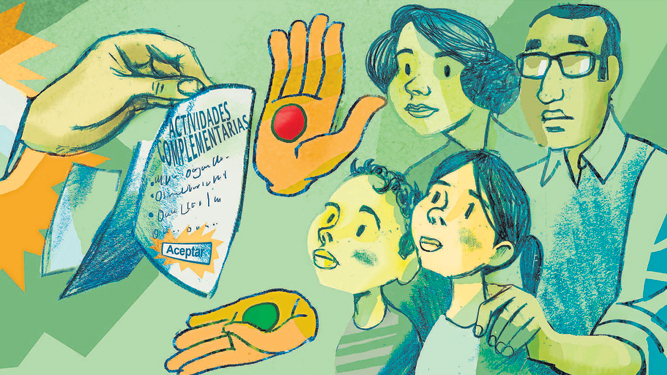Jigsaw time! Or maybe not.
- Irene Bueno

- 24 nov 2021
- 2 Min. de lectura
Actualizado: 27 nov 2021

[Untitled illustration explaining how a jigsaw teaching technique works.]. The Physical Educator. https://thephysicaleducator.com/2020/02/20/jigsaw-learning-in-physical-education/
Today I want to write about a cooperative learning technique: the jigsaw teaching technique. I suppose that, even if we do not know how to give a clear definition, we all understand how this technique is developed by now.
In short, different people are organised into groups, and then regrouped into different ones. The members of this new group will study or deal with a specific problem or topic and then each member will return to their original group to explain the subject covered to the other members.
Well, I find this technique very interesting, as it entails different benefits if we apply it to education. Listening time is minimized, and students take a more active role in their own learning process. In addition, it can also increase engagement, since each student depends on the rest of the students in their group, which is a great responsibility and can increase motivation and performance. On top of that, it also contributes to creating interaction and cooperation. What could go wrong, then?
Well, a lot of things, actually. It is true that the benefits are incredible, I like this technique and I will probably put it into practice in my future classes. However, I think that abusing it can be a mistake and be damaging for students, since not everybody learns in the same way. During our lessons this term, teachers have used this technique, in my opinion, excessively. Now, the exams are very close, and, personally, I feel like I have twice as much work to do, because we have had a lot of classes using this technique, and I do not feel like I really know the contents and the subject matters that we have studied.
And why do I feel this? Because using this technique for a specific project or a specific class is fine, but as a way of designing a subject, I do not think it is that beneficial. But mainly, I think it is because of the time we have had, as if it had not been taken into account. Both the time we were given to work in the expert groups and the time we were given to explain and debate with our original groups was too limited. In my opinion, we did not have enough time to cover all the work we had to do and to really understand the contents the other members of our group had treated. I believe we were more focused on finishing the task in time, than in the contents we were dealing with.
So, my conclusion is the same as always, using different techniques in our classes? Of course. Using just one? Absolutely not.



Comentarios